
How to Return to Work Safely
As the year 2020 marched forward, it became evident that COVID-19 would force a lockdown across the U.S., if not across the globe. For seemingly

As the year 2020 marched forward, it became evident that COVID-19 would force a lockdown across the U.S., if not across the globe. For seemingly
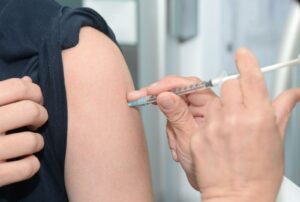
It’s not difficult to believe that the healthcare industry is a hazardous industry to work in. Even as the current pandemic has relegated most of
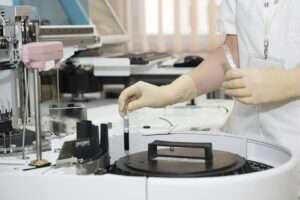
Table of Contents What are some examples of Biohazard Waste? What is Biohazardous Medical Waste? Primary Categories of Medical Biohazard Waste Disposal of Common Biohazardous
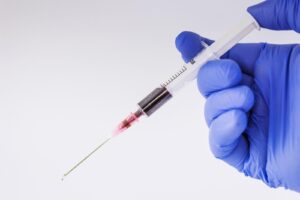
Table of contents What Is Sharps Waste? Does My Organization Need to Dispose of Sharps Waste? Why Should Sharps Waste Be Disposed of Separately? What’s
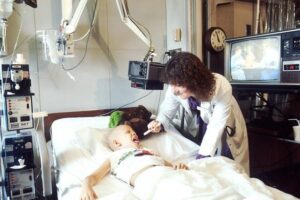
To improve patient satisfaction among healthcare organizations, an impartial survey, known as the Hospital Consumer Assessment of Healthcare Providers and Systems (HCAHPS), evaluates each healthcare
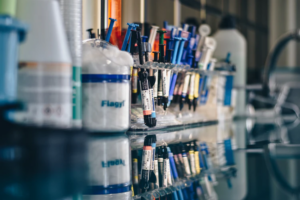
The World Health Organization (WHO) site states that injections are one of the most common health care procedures. Over 16 billion injections are provided annually
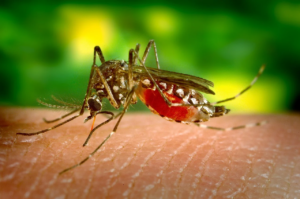
Unless you’ve been living under a rock, you already know there are currently hundreds of thousands of cases of Covid-19 worldwide. But that’s not all.
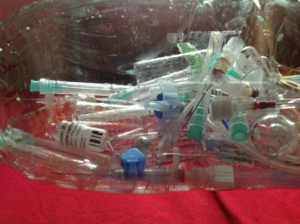
Hospitals in the United States create about 25 pounds of medical waste per patient each day. Strict regulations are made to ensure proper medical waste

It is estimated that the life science industry produces over 5.5 million tons of plastic every year. Plastics are used in 80-90 percent of medical supplies, ranging from personal protection equipment, pipettes, tubes, test kits, toxicology screening items, sharps, and others. Because medical waste is highly regulated, plastic components cannot be easily recycled. Instead, they are typically autoclaved1 and landfilled, burned for energy production (called waste-to-energy, or WtE), or incinerated without energy capture. These disposal methods carry emissions, energy use, and other impacts to the planet.

In the healthcare and life science sector, the management of biohazardous waste presents both a critical challenge and an opportunity for innovation. As the global population grows and medical advancements continue, an increase in single-use plastics and the volume of biohazardous waste generated by laboratories has escalated, posing significant environmental and public health concerns. Sterilis Solutions is revolutionizing biohazardous waste management, offering a sustainable solution that minimizes environmental impact while ensuring the safety of laboratory personnel, healthcare workers, and the community at large.
BOXBOROUGH, Mass., April 10, 2024 /PRNewswire/ — Sterilis Solutions, a pioneer in on-site medical waste remediation, and Polycarbin, a leader in circular economy solutions for lab plastics, proudly announce their strategic partnership aimed at enhancing sustainability in laboratory waste management. Sterilis, with its innovative Remediator technology, empowers labs to convert regulated medical waste (RMW) into harmless, unrecognizable material within about 60 minutes. Their mission is centered on providing environmentally conscious and forward-thinking solutions for on-site waste management.

BOXBOROUGH, Mass., Nov. 23, 2020 /PRNewswire/ — Sterilis Solutions LLC, an innovator in regulated medical waste management, has increased their production volume to assist in on-site remediation for the COVID-19 vaccine due early next year. By partnering with hospitals, clinics, pharmacies, and drive-thru vaccine sites, the aim is to reduce risk to healthcare providers (HCP), first responders, and environmental services (EVS), while maintaining the company goal to prioritize long-term sustainability for regulated medical waste (RMW) disposal - in this case, the millions of syringes to be utilized for the COVID-19 vaccine.

Atlanta, GA – June 28, 2021 – Sterilis Solutions, headquartered in Boxborough, MA, manufactures an innovative IoT device that turns federal and state-regulated hazardous medical waste into harmless, sterile waste that is safely discarded as regular trash. It replaces the expensive and arduous task of hauling the waste to landfills or incinerators and addresses the process of medical waste disposal in a more climate-friendly, sustainable way.

For years, Sterilis Solutions has sold its portable biohazardous medical waste treatment units to health care facilities, enabling them to process sharps and red bag waste onsite and dispose of residuals in the regular trash. But during the current COVID-19 pandemic, the Chicago-based company is pitching an expanded application of its processor: mobile units.
The COVID pandemic has produced a staggering amount of waste. But where is it all going? Massachusetts-based Sterilis Solutions is helping to offer a more sustainable option. Natalie Lizzeraga explains.

Not a week goes by without somebody telling staff at the Harm Reduction Center Las Vegas that instead of just dropping off used needles in exchange for clean ones, instead of grabbing a few snacks to chow down before returning to life on the streets, they want off drugs. Sometimes it comes after a scare — an overdose on heroin that could have killed them. Sometimes it doesn’t seem prompted by any one thing in particular — maybe they just needed to see the option in front of them the right number of times.

SANDWICH, Mass. — The town of Sandwich thought it had found a solution for one problem: safely disposing of discarded drug needles. It came as the community struggled with the opioid crisis. But along the way, the town discovered another serious public safety issue that surprised everyone. A stop at Sandwich Fire Station 1 is part of Tom’s daily routine on the Cape. He comes here to drop off used syringes, part of his diabetes treatment.

Just a few weeks ago, Sandwich police responded to a call that has become all too typical: A gas station patron found an unconscious man on the bathroom floor. The man, who had overdosed, was resuscitated and sent to the hospital. The call would have ended there, had it not been for two needles atop the trash can in the bathroom stall—sharps that first responders would now have to dispose of, despite the risk of needle pricks and potential blood pathogens. Scenes like this one, says Sandwich Deputy Fire Chief John “JJ” Burke, weigh heavily on first responders who are left to deal with the aftermath of drug calls.

OUR NATION IS BATTLING AN intensifying opioid epidemic, seen consistently in our newspapers and on TV. However, it’s not until it affects our daily lives that we truly see the ramifications and magnitude of the problem. As firefighters, we have more exposure to this epidemic than most, since many of us have been trained on naloxone use and have responded to a drug-related call or know someone who has.

while hospitals and doctors’ offices often have extensive programs in place to deal with the biohazardous waste they produce, medical waste generated in the home is more difficult to sequester for safe disposal. Often, people aren’t sure what to do with their needles or are simply careless with the way they dispose of them. A rise in heroin use around the country, while harrowing on its own accord, also has not helped matters.
Learn how you can turn hazardous to harmless in a simple, safe and sustainable way!